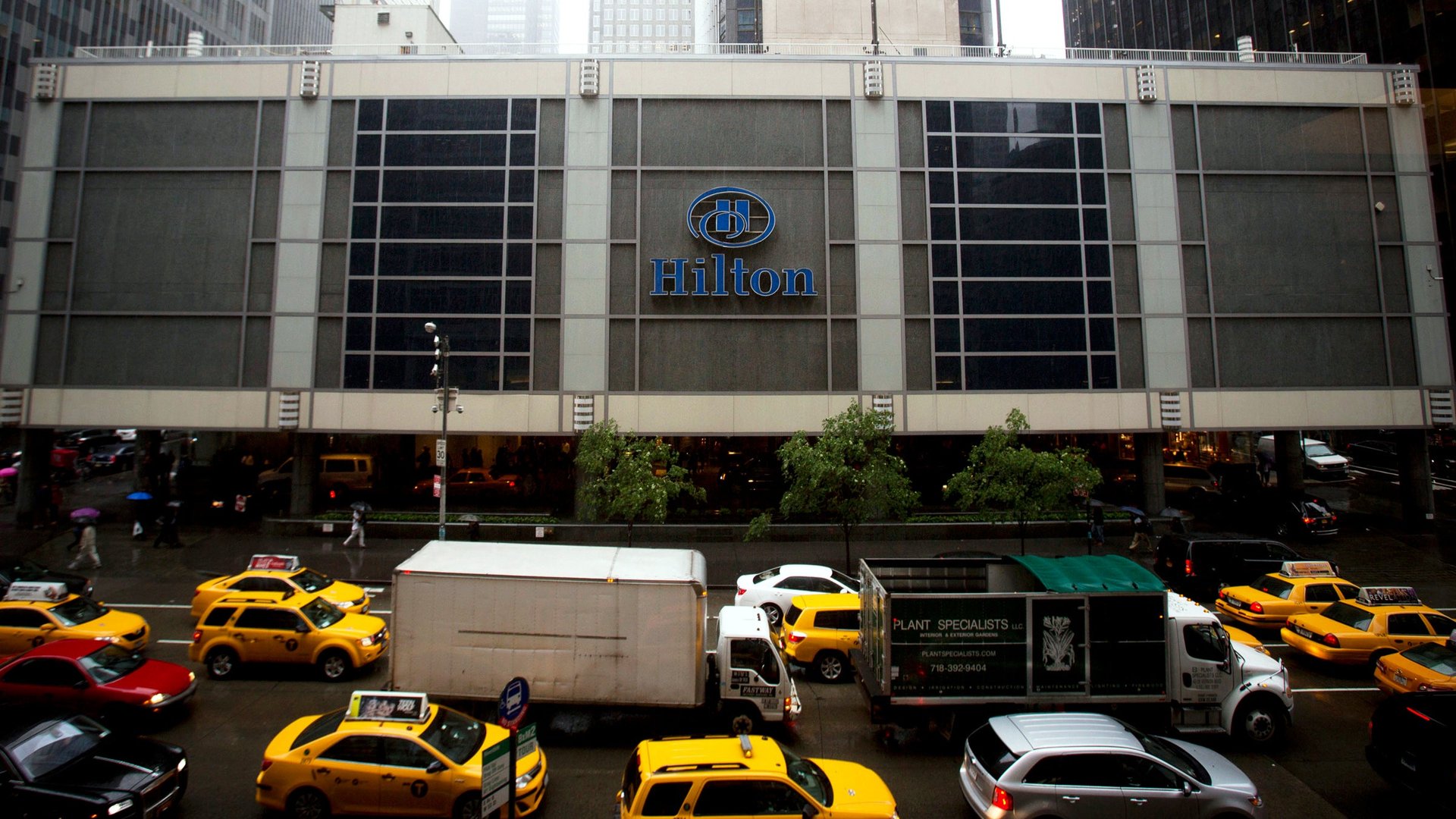Why is Blackstone taking Hilton Hotels public as if it were a tech company?
Private equity giant Blackstone’s decision to take Hilton hotels public, announced in a filing today, is less than meets the eye.


Private equity giant Blackstone’s decision to take Hilton hotels public, announced in a filing today, is less than meets the eye.
Less because Blackstone says it only intends to sell $1.25 billion worth of shares to the public. That’s less than 5% of the company if it is valued around $26 billion, about the same 12 or 13 times earnings as peers like Starwood Hotels and Marriott International.
If that plan makes it to the markets as-is—there’s still time for the company to significantly increase its offering—it would be a remarkably low float for a successful company in an established industry. Companies going public typically sell more than 10% of their shares, with a rough average of about 25%. When KKR took hospital chain HCA public in 2011, it sold 24% of the company’s shares and raised $3.8 billion.
But there’s one kind of company where low floats are common: internet firms. Groupon sold just 4.7% of its shares when it went public; Google, LinkedIn, Zynga and Pandora all sold fewer than 10% of their shares in their first forays onto the exchanges.
What makes Hilton similar to a tech company (whatever “tech company” means) isn’t its business but its ownership structure. Both are owned by a small group of private investors (founders and venture capitalists for the tech firms, a private equity fund in Hilton’s case). These owners aren’t going public to raise capital; they are going public to cash out.
The theory of low-float offerings (paywall) is that they drive up the stock price of a company by keeping the supply of available shares low. Existing owners—like Blackstone, which will retain the bulk of Hilton—then benefit from the higher share price, but don’t dilute their holdings. Tech firms, similarly, tend to keep their public offerings small so as to get a share-price “pop” without diluting the early-stage investors who got them started.
Selling so few shares in Hilton means Blackstone won’t bring in as much capital as it could have, but capital isn’t the goal. The goal is to help bolster Blackstone’s eventual return on a company that it probably overpaid for in the first place. Hilton was purchased in 2007 for $26 billion, including $6 billion of Blackstone’s own money, when the market valued it around $18.5 billion. The hotel chain became an albatross around the firm’s neck as the housing bubble dinged commercial real estate and the recession killed business travel. Even now that the chain has rebounded and restructured away $4 billion of debt, a full sale wouldn’t come close to the epic returns Blackstone is used to.
But taking it public now while holding onto most of the equity means benefitting not just from the “pop”, but also a broader shift from bonds to equities and the fact that, with business travel on the rise again, investors like big hotel chains. Secondary offerings down the road, plus a continuing flow of dividends, promise bigger money than an early exit.
Blackstone apparently values its hotel chain above its more exotic assets: When it took SeaWorld public earlier this year, it sold 28% of the existing stock.